6 alternatives to Ecwid
With inflation affecting the everyday costs of living — including gas, food, and beyond — it’s a good time for small businesses to consider transitioning to online storefronts. Online stores are convenient for customers and reduce overhead costs, helping businesses in all industries stay afloat during uncertain times.
But moving your store online — whether you’re making the switch from a brick-and-mortar shop or just creating an online store in addition to one — can be daunting, especially if you don’t have the right tools.
Luckily, e-commerce apps like Ecwid help make digital transformation easier — and more successful. Although Ecwid is an e-commerce plug-in (i.e., an extension that you can add to an existing website builder) and not a robust, standalone platform, it can still help you sell your products, market your business, and manage your inventory from the palm of your hand.
While it’s impressive, Ecwid isn’t the only e-commerce tool on the market. Here are six Ecwid alternatives to consider for your small business.
1. PrestaShop
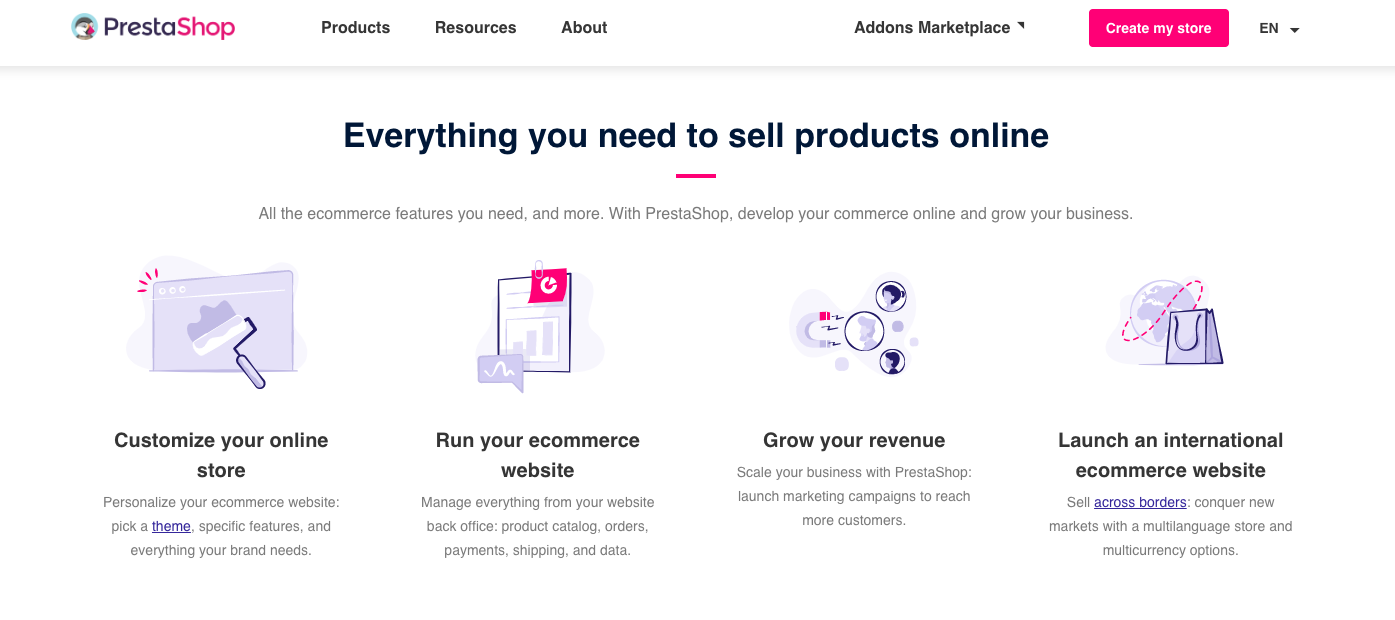
First on this list of Ecwid alternatives is e-commerce platform PrestaShop. With PrestaShop, you can personalize your online store, manage its day-to-day operations, and launch marketing campaigns to expand your reach — even internationally.
Using PrestaShop’s multiple language and currency options, you can sell your products and services around the world. It offers integrations with popular services, including a variety of marketing, shipping and logistics, design, and payment processing solutions. More than 300,000 brands trust PrestaShop, so you can count on it to help you grow and scale your e-commerce business.
2. Jotform Store Builder
Using the code-free, drag-and-drop tool Jotform Store Builder, you can start selling your products and subscriptions in minutes, which is why it should be on your Ecwid alternatives shortlist.
With Jotform Store Builder you can build customized, compelling pages with your brand’s colors and fonts, upload your logo, and add product images, descriptions, and even a search bar to help your customers find specific products. You can design a store from scratch or use one of Jotform’s 100-plus store templates to get started.
Next, connect your store with 25-plus payment gateways — like PayPal, Square, and Venmo — to collect payments or donations (without paying any additional transaction fees to Jotform).
And, finally, publish and share your store by embedding it into your website or emailing a link to your mailing list. Jotform Store Builder is powerful, intuitive, and flexible, helping you create the online store of your dreams, regardless of your programming experience.
3. SamCart
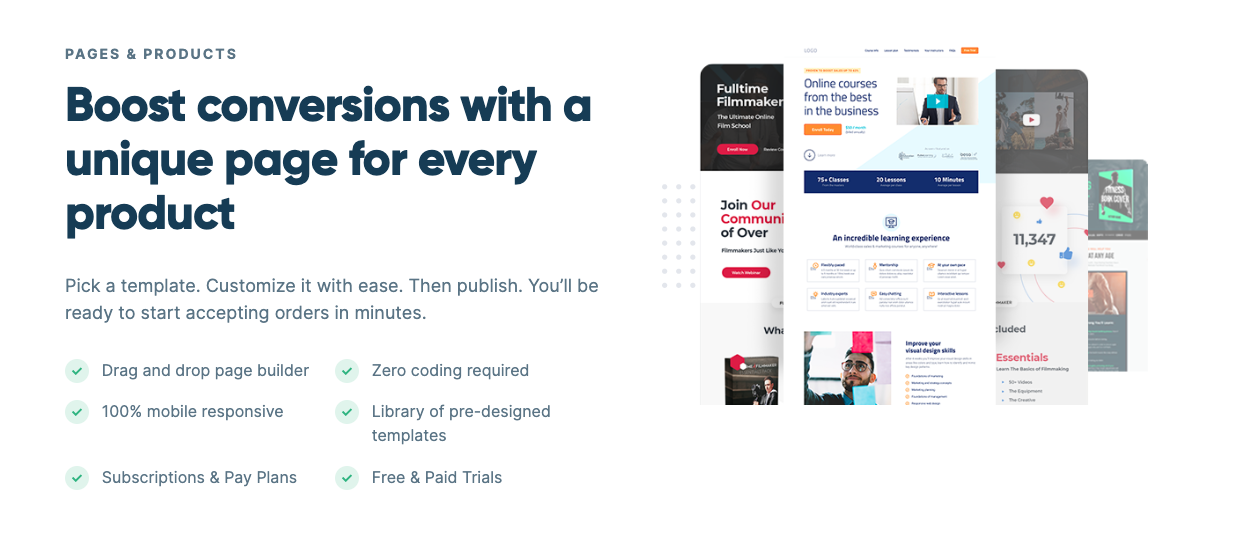
Whether you sell physical or digital products — or a mix of both — e-commerce platform SamCart can help your online business soar. Use its drag-and-drop page builder and library of premade templates to design your store, and enable one-click product upsells and automated cart recovery to enhance the customer experience.
Plus, thanks to SamCart’s A/B testing capabilities, insightful reporting and analytics, and smart pixel tracking, you’ll never have to make assumptions about how and why your store is growing. Plus, you’ll be able to track, manage, and store all your valuable business information in one place.
4. Volusion
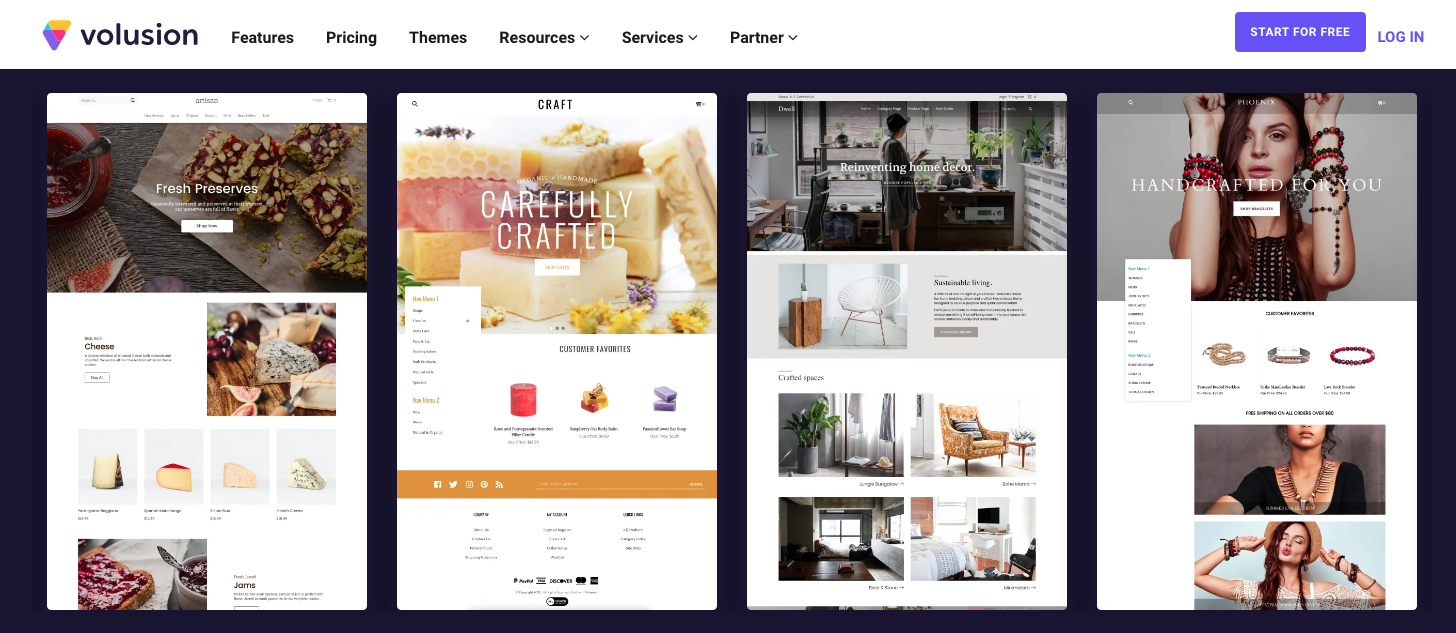
As a software-as-a-service (SaaS) platform — which includes web-hosting capabilities and software updates — Volusion has all the tools you need to create a dynamic online store. For your store design, choose from a library of free templates and customize them with drag-and-drop content blocks and a homepage slideshow.
For improved search engine rankings, you can optimize meta descriptions, title tags, and keyword research. And you can track and manage it all — collecting valuable, actionable data — from one powerful dashboard.
5. WooCommerce
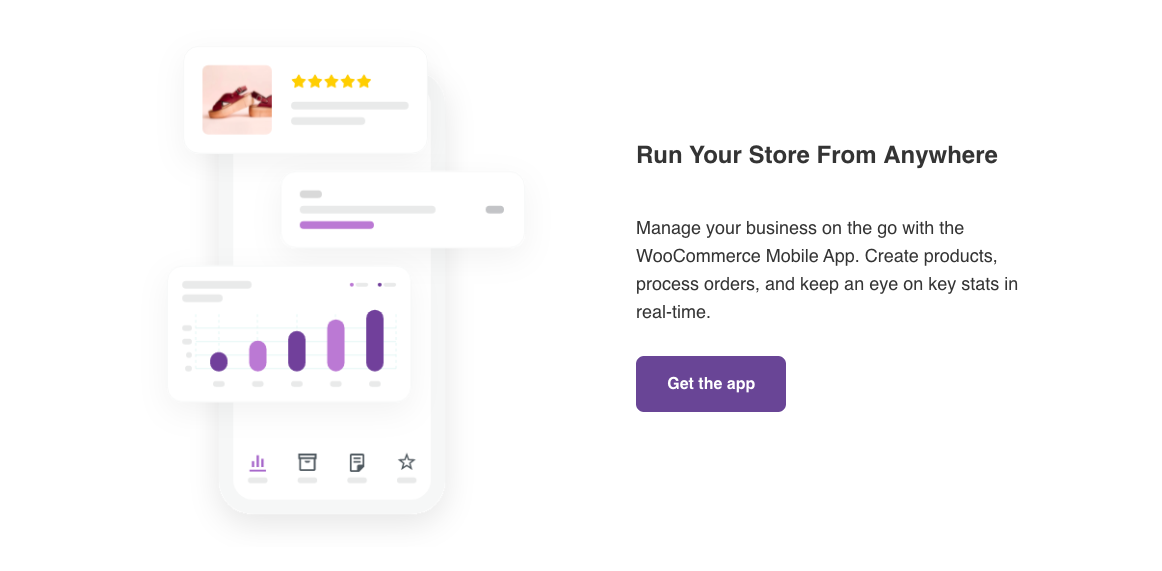
Like Ecwid, WooCommerce is also an e-commerce plug-in that helps you sell your products through a website builder. However, WooCommerce works specifically with WordPress, while Ecwid works with various site builders.
With WooCommerce, you can make store enhancements to improve the customer experience — like 360-degree product image rotation, gift-wrapping services, and one-page checkout. You can also grow and scale your business using third-party integrations: Boost sales with Google Shopping, engage customers with Mailchimp, and track your efforts with Google Analytics. WooCommerce is easy to use, customizable, and scalable — designed to adapt as your business needs change over time.
6. Wix eCommerce

With Wix eCommerce, you can sell both physical and digital goods and services from a fully customizable online storefront, build recurring revenue with exclusive subscriptions, boost search engine rankings, and offer a host of payment options to your customers.
Wix integrates with 250-plus apps (including printing, warehousing, shipping, and marketing tools) to optimize and scale your business as you see fit. However, though similar to Ecwid, some reviewers say Ecwid is easier to navigate than Wix eCommerce.
Owning your own business is challenging enough, so why make the switch online even harder? With Ecwid or these six Ecwid alternatives to serve as your e-commerce guide, you’ll be better prepared to face the unknown.









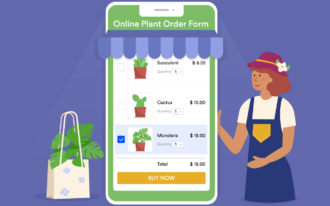




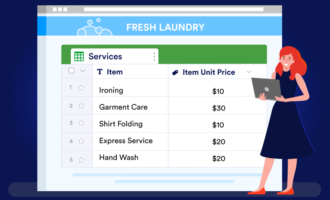

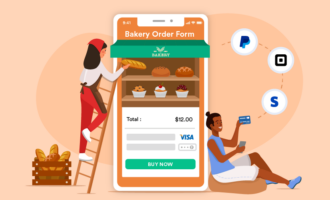













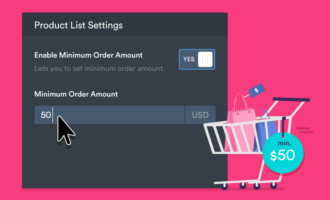
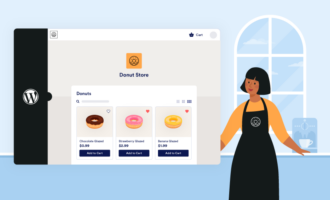


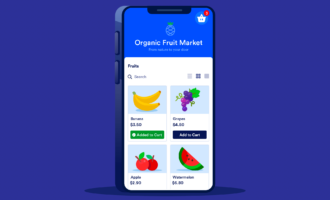








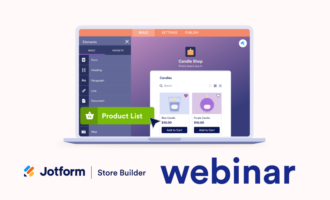



Send Comment: